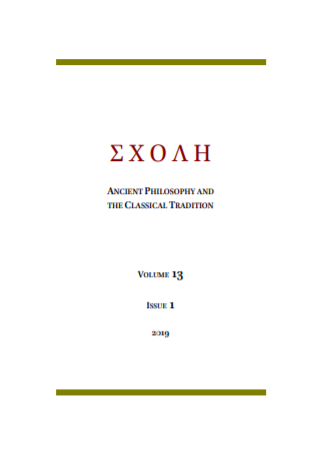Человеческая идентичность в диалоге Платона «Алкивиад I» (к вопросу об антропологической проблематике в древнегреческой философии)
Human Identity in Plato’s Alcibiades I (Some Notes on Anthropological Questions in Ancient Greek Philosophy)
Author(s): Daniil DorofeevSubject(s): Anthropology, Metaphysics, Ancient Philosphy, Ontology, Identity of Collectives
Published by: Новосибирский государственный университет
Keywords: human identity; self-hood; ayto to ayto; soul; being; Plato; ancient anthropology;
Summary/Abstract: The article is devoted to Plato’s Alcibiades I and explores its main question: what is your proper self? The author pays special attention to the concept of “ayto to ayto”, which he takes to mean “selfhood”. This concept is analyzed as the first fundamental philosophical form of understanding of human identity, which Plato viewed as a soul. Plato fundamentally distinguishes essence of a person (ayto to ayto) from things that belong to a person, the attributes of human being (such as his body and material property). The author explores the Platonic understanding of human identity in the context of ancient ontology and anthropology, which includes an analysis of the relationship of a single person and universal being, authentic and inauthentic Ego, the soul (mind) and the body, the significance of “care about self” (epimeilea heautou) and “cognition of self” (gnothi seautou), etc. The concept of Plato represents the first experience of comprehending the human identity ("ayto to ayto" as soul) which appears as impersonal subject and media Being, but realized in perspective of self-correlation "care of self" and "cognition of self" by particular man.
Journal: ΣΧΟΛΗ. Философское антиковедение и классическая традиция
- Issue Year: XIII/2019
- Issue No: 1
- Page Range: 251-268
- Page Count: 18
- Language: Russian

